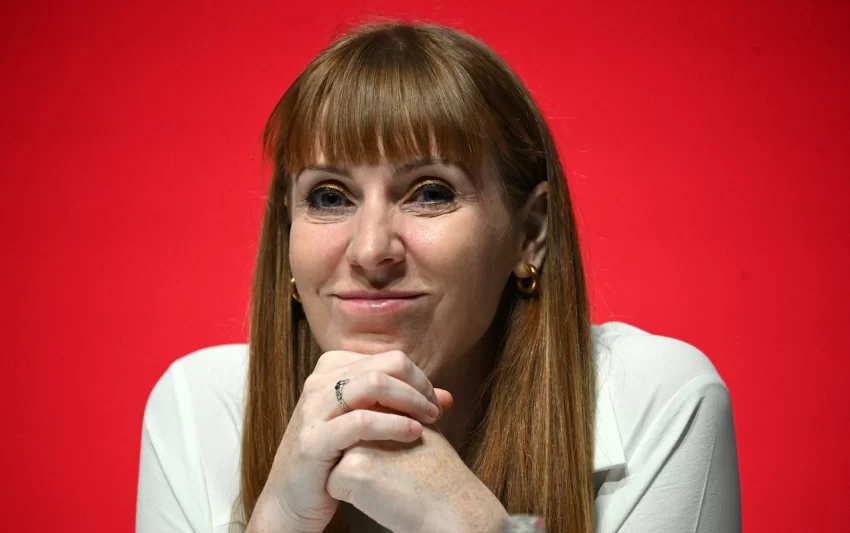Albania turns to AI to beat corruption and join EU
TIRANA, Albania — While the rest of Europe bickers over the safety and scope of artificial intelligence, Albania is tapping it to accelerate its EU accession.
It’s even mulling an AI-run ministry.
Prime Minister Edi Rama mentioned AI last month as a tool to stamp out corruption and increase transparency, saying the technology could soon become the most efficient member of the Albanian government.
“One day, we might even have a ministry run entirely by AI,” Rama said at a July press conference while discussing digitalization. “That way, there would be no nepotism or conflicts of interest,” he argued.
Local developers could even work toward creating an AI model to elect as minister, which could lead the country to “be the first to have an entire government with AI ministers and a prime minister,” Rama added.
While no formal steps have been taken and Rama’s job is not yet officially up for grabs, the prime minister said the idea should be seriously considered.
Ben Blushi, a former ruling party politician and author with a keen interest in AI, said he believes there is nothing to fear from the technology, and that AI-run states are a real possibility that could turn our concept of democracy on its head.
“Why do we have to choose between two or more human options if the service we get from the state could be done by AI?” Blushi said. “Societies will be better run by AI than by us because it won’t make mistakes, doesn’t need a salary, cannot be corrupted, and doesn’t stop working.”
Albania has long grappled with corruption in all facets of society, and politics is no exception. The ruling party has seen its fair share of officials charged with and convicted of corruption. Opposition leader Sali Berisha is currently facing a corruption trial, and former prime minister and president Ilir Meta is behind bars.
AI already in play
AI is a tool, not a miracle, according to Jorida Tabaku, a member of Albanian parliament with the opposition Democratic Party. She said that in the right hands, it can transform governance — but that in the wrong hands, it becomes “a digital disguise for the same old dysfunction.”
While she supports digital innovation and AI, Tabaku said the entire governance system needs a reset before AI could be rolled out.
AI is already being used in the administration to manage the thorny matter of public procurement, an area the EU has asked the government to shore up, as well as to analyze tax and customs transactions in real time, identifying irregularities.

The country’s territory is also being monitored by smart drones and satellite systems, which use AI to check for illegalities on construction sites and public beaches and for cannabis plantations in more rural areas.
Additionally, there are plans to use AI to combat problems on Albanian roads by using facial recognition technology to digitally issue a prompt to a driver’s mobile device to slow down, as well as to send details of speeding fines via text message or email. The country currently has one of the highest rates of fatal traffic accidents in Europe, according to the state statistics agency, mainly due to speeding.
There are also aspirations to use AI in health care, education and digital identification of citizens.
But Tabaku said that there must be public consultation and clarity around how the technology will be applied, how much it costs — and most importantly, who is programming the algorithms.
“If the same actors who benefited from corrupt tenders are the ones programming the algorithm, then we’re not heading into the future. We’re hard-wiring the past,” she said.
“You can’t fix a rigged system by putting it in the cloud,” Tabaku said. “In a country where 80 percent of the budget runs through public contracts — and a third are handed out without real competition — AI won’t clean up corruption. It will just hide it better,” she said.
Hey Siri, how quickly can we join the EU?
Albania made headlines in 2024 when the prime minister announced that AI was being used to help Albania along its path to membership in the European Union.
After formally opening negotiations in 2022, the country started aligning with the EU acquis, comprising some quarter of a million pages of laws, rules and standards. With Rama’s landslide victory in the 2025 general elections on a ticket trumpeting EU membership by 2030, the race is on to get the work done.
The idea is that AI would take care of the translation, and then do the hard work of identifying divergences in national and EU laws — the first time it has been used in the EU membership process.
Albania has partnered with Mira Murati, the former chief technology officer of OpenAI and the creator of ChatGPT, who was born in southern Albania.
“We reached out to her in the first week after ChatGPT was launched when we became aware of its existence,” Rama said. Thanks to that collaboration, “Negotiations with the EU are being conducted with the assistance of artificial intelligence,” the prime minister said.
Rama noted that Croatia, which he said “excelled” in EU integration, took seven years to complete the process — whereas Albania aims to do so in five, completing the paperwork by 2027.
Odeta Barbullushi, a former adviser to Rama on EU integration and a professor at the College of Europe in Tirana, agreed that the “sheer volume of the EU aquis is overwhelming and the number of staff needed to translate this in a traditional manner would be massive.”
For the technical translation tasks, she said, AI can be “beneficial” and “truly accelerate” the process. But it cannot do the whole job, she added.
“The process of the actual adoption and alignment with the EU acquis is essentially a political process and as such, needs political oversight and policy orientation,” Barbullushi said.
Rama and Murati’s company, Thinking Machines, did not reply to request for comment.
Virtual public servants and baby leaders
The AI push comes amid a broader focus on digitalization in Albania. Rama announced in July that he wants the country to be cashless by 2030, shifting to digital-only payments. The country also recently moved 95 percent of all citizen services online through a portal called e-Albania.
Logging onto the platform, users are greeted by a cheerful AI “virtual public servant” that helps them file tax documents, download birth certificates and apply for licenses and permits.
While several cyberattacks from Iran have hit the platform, and some elderly citizens have struggled to come to grips with it, Rama says it has managed some 49 million transactions in five years, saving 2.4 million Albanians in the country and 2.8 million in the diaspora more than €600 million.
But AI is not just being used for practical purposes in Albania.
In May, some 47 heads of state and government from around Europe descended on Tirana for the European Political Community summit, and were treated to a nearly two-minute video welcoming them to the country in their own language.
But this was a video with a difference. Using AI, the Albanian government had generated an electronic baby version of each leader, which spoke with a child’s voice in their mother tongue.
“Benvenuti in Albania,” said baby Giorgia Meloni in Italian. “Dobrodošli u Albaniju,” said baby Aleksandar Vučić in Serbian.
Some members of the audience smiled and laughed, while others remained stony-faced. International media were fascinated with the eccentric use of AI at an official event.
But beyond the entertaining and obscure, it’s not clear if Albania has the actual capacity to take this leap.
Gerond Taçi, a local AI expert, said that the country lacks expertise, people, know-how, data centers and money. The rollout of such technology will also require a step-by-step plan with appropriate controls and legal changes, not to mention a “plan for disaster recovery,” Taçi said.
“But there is no other way. The adaptation must go forward, and the Albanian people must be aware of this and be ready for the transition,” he concluded.




















:quality(85):upscale()/2023/09/18/918/n/1922398/a1136b676508baddc752f5.20098216_.jpg)
:quality(85):upscale()/2025/10/09/670/n/1922283/00b944c868e7cf4f7b79b3.95741067_.jpg)
:quality(85):upscale()/2025/10/15/765/n/1922398/29c37a6e68efd84bb02f35.49541188_.jpg)
:quality(85):upscale()/2025/09/09/891/n/1922283/7222624268c08ccba1c9a3.01436482_.png)
















